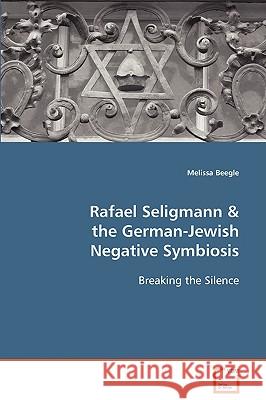Rafael Seligmann & the German-Jewish Negative Symbiosis » książka
Rafael Seligmann & the German-Jewish Negative Symbiosis
ISBN-13: 9783836483506 / Angielski / Miękka / 2008 / 112 str.
More than fifty years have past since the Shoah, but the relationship between Jewish and non-Jewish Germans is still strained. Why do Jewish-Germans choose to live in post-Shoah Germany? How does their presence affect the lives of their non-Jewish German countrymen? Rafael Seligmann (1947 - ) was one of the first German-language Jewish authors to write about contemporary life in post-Shoah Germany. He is considered one of the most controversial of the contemporary German-Language Jewish writers because he breaks taboos and negatively portrays Jewish characters in his novels. He feels there is a silence in Germany surrounding the Holocaust that he hopes to break by provoking his readers to discuss how the Shoah affects their lives.This book applies the ideas of scholars such as Gershom Scholem, Dan Diner, Todd Herzog, Jack Zipes, Hannah Arendt and Katja Behrens to Seligmanns novels, Rubensteins Versteigerung (1989), Die jiddische Mamme (1990), and Der Musterjude (1997) to evaluate Seligmanns perception of the manifestations of the German-Jewish negative symbiosis on life in post-Shoah Germany.











